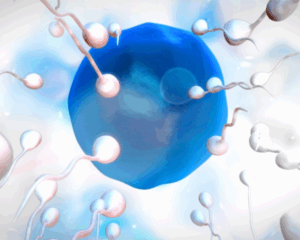
Prolistem for Non-Obstructive Azoospermia: A Comprehensive Guide
Prolistem for non obstructive azoospermia, Non-obstructive azoospermia (NOA)

When it comes to male fertility, many factors contribute to the overall reproductive health, and diet plays a pivotal role. A healthy diet filled with the right nutrients can support sperm production, improve sperm quality, and enhance fertility. If you’re looking for ways to naturally increase sperm production, certain foods can make a significant difference.
In this article, we’ll dive into the foods that promote sperm health, improve sperm count, and increase motility. We’ll also explore the essential vitamins and minerals that aid in the process, helping you optimize your fertility in the most natural way possible.
Before we explore the foods that boost sperm production, it’s important to understand the factors involved in healthy sperm production:
Sperm Count: This refers to the number of sperm present in the semen. A higher sperm count generally increases the chances of fertilization.
Sperm Motility: This is the ability of sperm to move effectively. Poor motility may reduce the chances of sperm reaching and fertilizing the egg.
Sperm Morphology: This refers to the shape and structure of sperm. Abnormal sperm morphology can affect fertility.
Sperm Quality: Overall sperm health, including count, motility, and morphology, is crucial for successful conception.
Improving sperm health involves making certain dietary changes, as well as adopting a healthy lifestyle. Let’s look at some foods that can help increase sperm production and improve overall male fertility.
Here’s a list of nutrient-dense foods that can help promote sperm production:
Leafy greens like spinach, kale, and broccoli are packed with folate, which is essential for the production of healthy sperm. Folate improves sperm count and motility. Additionally, leafy greens are rich in antioxidants that protect sperm from oxidative stress, a common factor that can negatively impact sperm quality.
Key Nutrients:
Folate
Vitamin C
Antioxidants
Nuts, including almonds, walnuts, and sunflower seeds, are rich in healthy fats, zinc, and antioxidants, all of which support sperm production. Walnuts, in particular, are a great source of omega-3 fatty acids, which can increase sperm count and improve motility. Zinc is especially important, as it directly affects sperm production and overall reproductive health.
Key Nutrients:
Omega-3 fatty acids
Zinc
Vitamin E
Fatty fish like salmon, mackerel, and sardines are loaded with omega-3 fatty acids, which promote healthy sperm production. Omega-3s help improve sperm motility and protect sperm cells from oxidative stress. Additionally, fatty fish is rich in vitamin D, which plays a vital role in regulating testosterone levels, a hormone essential for sperm production.
Key Nutrients:
Omega-3 fatty acids
Vitamin D
Protein
Eggs are a highly nutritious food, packed with protein, vitamin E, and selenium. These nutrients help protect sperm from oxidative damage and support the production of healthy sperm. Selenium, in particular, is a potent antioxidant that helps protect sperm cells from damage, ensuring that they remain viable for fertilization.
Key Nutrients:
Protein
Vitamin E
Selenium
Citrus fruits such as oranges, grapefruits, and lemons are rich in vitamin C, which is a powerful antioxidant. Vitamin C helps reduce oxidative stress in the body, improving sperm quality. It also plays a role in maintaining sperm motility, helping sperm swim toward the egg for fertilization.
Key Nutrients:
Vitamin C
Antioxidants
Berries like strawberries, blueberries, and raspberries are full of antioxidants that protect sperm from damage. They are also an excellent source of vitamin C, which is essential for sperm health. Including berries in your diet can help increase sperm count and motility, as well as improve overall reproductive health.
Key Nutrients:
Antioxidants
Vitamin C
Avocados are rich in healthy fats, folate, and vitamin E. These nutrients play an important role in supporting sperm production and improving sperm quality. Healthy fats are essential for the production of hormones like testosterone, which directly affects sperm production.
Key Nutrients:
Healthy fats
Folate
Vitamin E
Garlic contains allicin, a compound known for improving blood circulation, including to the reproductive organs. Better blood flow means better sperm production. Garlic also contains antioxidants that protect sperm from oxidative damage, helping improve sperm count and motility.
Key Nutrients:
Allicin
Antioxidants
Oysters and other shellfish are high in zinc, a mineral that is crucial for sperm production. Zinc helps maintain sperm count and motility, and it also supports healthy testosterone levels. In addition to zinc, oysters are packed with protein and other essential nutrients that promote overall reproductive health.
Key Nutrients:
Zinc
Protein
Iron
Dark chocolate, especially varieties with 70% or higher cocoa content, is loaded with flavonoids and antioxidants. These nutrients help improve sperm count and motility while reducing oxidative stress. Dark chocolate also contains amino acids like arginine, which help increase sperm production.
Key Nutrients:
Flavonoids
Arginine
Antioxidants
Tomatoes are an excellent source of lycopene, a powerful antioxidant that helps protect sperm from oxidative damage. Lycopene has been shown to improve sperm motility and count. Cooking tomatoes, such as in tomato sauce, can actually increase the bioavailability of lycopene, making it easier for the body to absorb.
Key Nutrients:
Lycopene
Antioxidants
Vitamin C
Pumpkin seeds are packed with zinc, omega-3 fatty acids, and magnesium, all of which play important roles in sperm production. These nutrients help improve sperm quality and motility, and they also support overall fertility. Incorporating pumpkin seeds into your diet is a simple way to boost reproductive health.
Key Nutrients:
Zinc
Omega-3 fatty acids
Magnesium
While foods are important, it’s essential to focus on specific nutrients that have been shown to improve sperm production:
Zinc: Zinc plays a vital role in sperm production and testosterone regulation. Low zinc levels are associated with reduced sperm count and motility.
Vitamin C: This antioxidant helps protect sperm from damage and enhances motility.
Omega-3 Fatty Acids: Omega-3s improve sperm motility and protect sperm cells from oxidative damage.
Folate: Folate supports sperm count and motility by aiding in DNA synthesis.
Selenium: Selenium is a powerful antioxidant that protects sperm from oxidative stress.
Vitamin E: This vitamin helps prevent sperm damage and improves sperm motility.
In addition to a healthy diet, consider these lifestyle changes to further boost sperm production:
Exercise Regularly: Regular, moderate exercise has been shown to improve sperm count and motility.
Manage Stress: Chronic stress can negatively impact hormone levels and sperm production.
Get Enough Sleep: Aim for 7-9 hours of quality sleep each night to support overall health and hormone balance.
Avoid Smoking and Excessive Alcohol: Smoking and heavy drinking can reduce sperm count and damage sperm quality.
Which foods increase sperm production? Incorporating nutrient-rich foods like leafy greens, nuts, fatty fish, eggs, citrus fruits, and avocados into your diet can significantly improve sperm health. By focusing on the key nutrients that support sperm count, motility, and overall quality, you can naturally enhance your fertility and reproductive health.
In addition to a healthy diet, making positive lifestyle changes such as regular exercise, stress management, and avoiding harmful habits like smoking and excessive alcohol consumption will help optimize your fertility. If you have concerns about fertility, it’s always a good idea to consult with a healthcare provider for personalized advice.
By focusing on your nutrition and overall lifestyle, you can take significant steps toward improving sperm production and boosting fertility.

Prolistem for non obstructive azoospermia, Non-obstructive azoospermia (NOA)

Introduction Male infertility, especially caused by azoospermia, affects

We are proud to have participated in the

Introduction: A New Hope in Male Infertility Treatment
PROLISTEM® is a Patented Formula
Copyright © 2025 Prolistem®